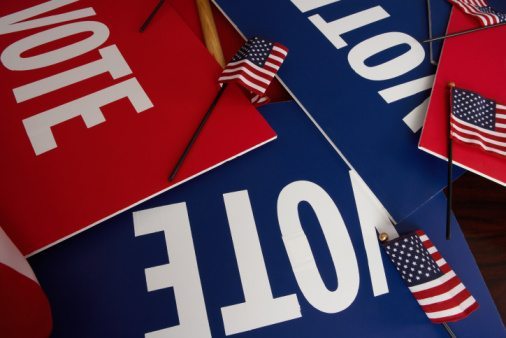The primaries are over and we are on to the general election. Because primary elections only decide who will represent political parties going into the general election, they are sometimes seen as less-important races. Many times, the primaries are the toughest battles. In a district that is considered Republican or Democrat “safe,” the primary is the real contest and the general election is the afterthought.
In Arizona’s 3rd Congressional District we can see how this works. It is considered Republican safe. Congressman John Shadegg decided not to seek re-election to this seat. While only one Democrat and one Libertarian candidate sought the office, 10 Republicans entered the race and spent roughly $3.5 million combined in a spirited contest. Ben Quayle won the Republican nomination and will go on to face Jon Hulburd, the Democrat’s nominee, and Michael Schoen, the Libertarian’s. These primaries had 79,011 Republicans cast ballots compared to 27,755 Democrats and 422 Libertarians. It would be hard for a Republican nominee to lose this seat with nearly a three-to-one margin of turnout advantage.
Two of the most significant factors in winning an election like this are incumbency and money.
Look at Arizona’s congressional seats. This year, seven of Arizona’s eight congressional incumbents were seeking re-election (with Shadegg deciding to step down). Of those seven, three were unchallenged within their primaries and the four that were challenged all won. Congressional incumbents went seven for seven in their primaries.
Of the 11 contested Republican or Democrat primaries, eight of them were won by the candidate who raised the most money. The three races that weren’t won by the top money raisers were won by the second-highest money raisers. These primary winners raised an average of $750,000 each.
Usually, people are discouraged by this. I’ve been asked, “Shouldn’t the candidate’s message and platform be the most important factors to decide a race?” I agree that they should, but here is the reality: If you are the greatest candidate the world has ever known, you are not going to get elected if people don’t hear your message! Incumbency is valuable because people become familiar with your name and it gives a candidate a tremendous boost raising campaign contributions.
Why does money have to be so important? Campaigns are about communicating a message to an electorate. Hiring a professional consultant to guide your campaign, using resources such as signs to build name ID, and having the ability to send out mail, make phone calls, or air television ads are all examples of how to communicate a message. All of these things require money. Without money, a candidate is just unknown.
As much as we would like to root for the little guy to win or the underdog to pull off the upset, the truth is that a candidate we have never heard of who doesn’t have campaign resources rarely gets our vote. They don’t have credibility because we don’t know them. It is unfortunate because sometimes they may be the better candidates.




